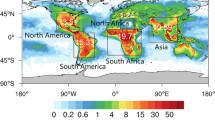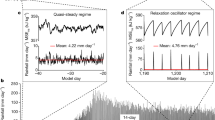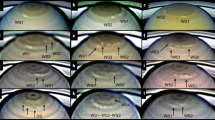Abstract
I ESCAPE from Wonderland to find myself in a land still stricken, where Nature has to be taken in lumps. The effect is a little shocking, to one who has been preaching the use of The Looking Glass. Reflexion at the end of the year, indeed, always, tells me that I am a miserable sinner but NATURE (December 19), in a review article on electrical precipitation, makes me out to be a reprobate of a truly awful type. According to one J. S. G. Thomas, whose acquaintance I, unfortunate, do not enjoy, I have dared to “question Simpson's theory” of the development of electricity in thunder clouds, proposed in 1909. Could any crime be more heinous than that of which I am declared guilty: that of bringing in hydrone in explanation of the thunder storm? Apart from the fact, that I have dared no explanation, it is a little difficult to leave the said fair one out, with water, water, everywhere. Even in water, the fundament does do something, I presume.
This is a preview of subscription content, access via your institution
Access options
Subscribe to this journal
Receive 51 print issues and online access
$199.00 per year
only $3.90 per issue
Buy this article
- Purchase on Springer Link
- Instant access to full article PDF
Prices may be subject to local taxes which are calculated during checkout
Similar content being viewed by others
Rights and permissions
About this article
Cite this article
ARMSTRONG, H. Do we—don't we—what do we—know?. Nature 117, 195–196 (1926). https://doi.org/10.1038/117195a0
Issue Date:
DOI: https://doi.org/10.1038/117195a0
Comments
By submitting a comment you agree to abide by our Terms and Community Guidelines. If you find something abusive or that does not comply with our terms or guidelines please flag it as inappropriate.



